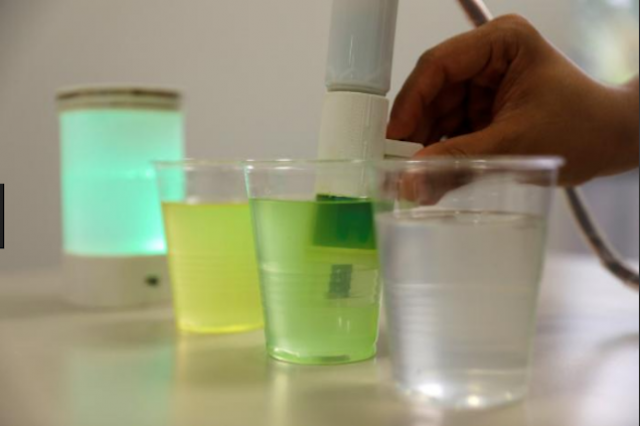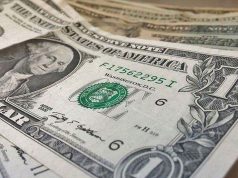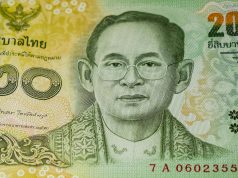
SINGAPORE | It looks like lemonade, tastes like lemonade, but it’s simply water.
Researchers in Singapore say they have invented a “virtual lemonade”, using electrodes to mimic the flavor of the beverage and LED lights to imitate its color, that could one day allow people to digitally share drinks over the internet.
“We are primarily motivated by the fact that our current digital interactions are not supportive for sharing beverages and food, which is something very common in our everyday lives,” said Nimesha Ranasinghe, who led the team that did the research.
The team conducting the research at the NUS-Keio CUTE Center, a collaboration between the National University of Singapore and Japan’s Keio University, decided to focus on the sour taste of lemonade to prove their idea.
A sensor dipped into a glass of real lemonade collects data on its acidity and color, which is transmitted via Bluetooth to silver electrode strips on the rim of a tumbler.
The action of a drinker running their tongue over the strip in taking a sip causes the electrodes to simulate the sour taste, while a light-emitting diode (LED) flashes yellow.
The technology can also simulate bitter and salty sensations, Ranasinghe said, adding that it could help people on restricted diets who need to cut back on salt or calories.
“We can even help the people who want to cut down their calorie intake,” she added. “If he craves lemonade, and can have a virtual lemonade, he can get the same experience, but zero calories.”
Still, the design needs some improvement, said student Genevieve Low, a volunteer who participated in tests of the drink.
“I think it’s definitely the way the tongue touches the cup, because no one would, sub-consciously or consciously, put their tongue onto the electrode and then drink the water,” she said in a recent test round.
Another volunteer student, Wang Pan, was surprised by the taste.
“I was imagining the electronic taste, but it’s actually quite real to me because it’s really mild, like mild-sweet. It’s less sour than the real lemonade,” she said.









